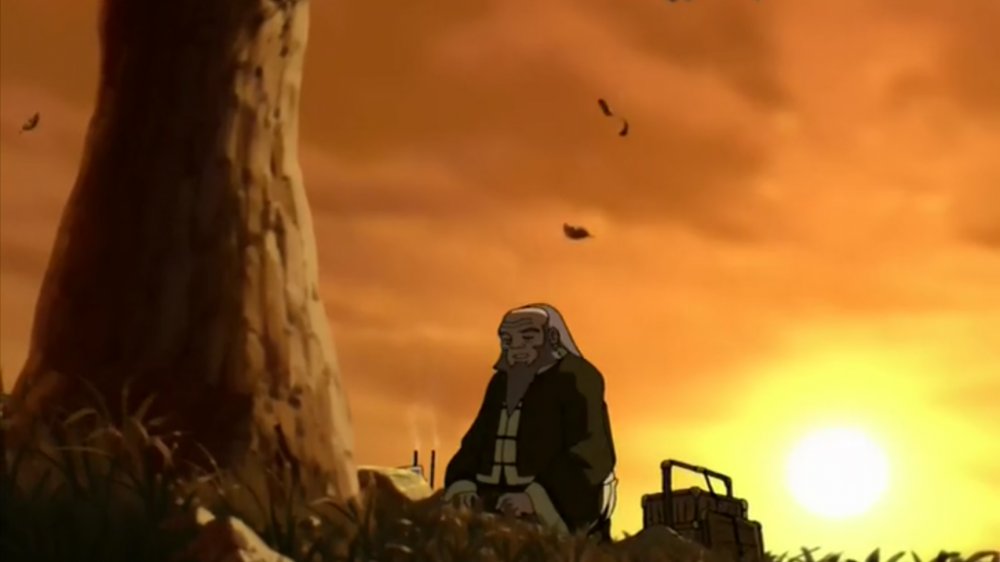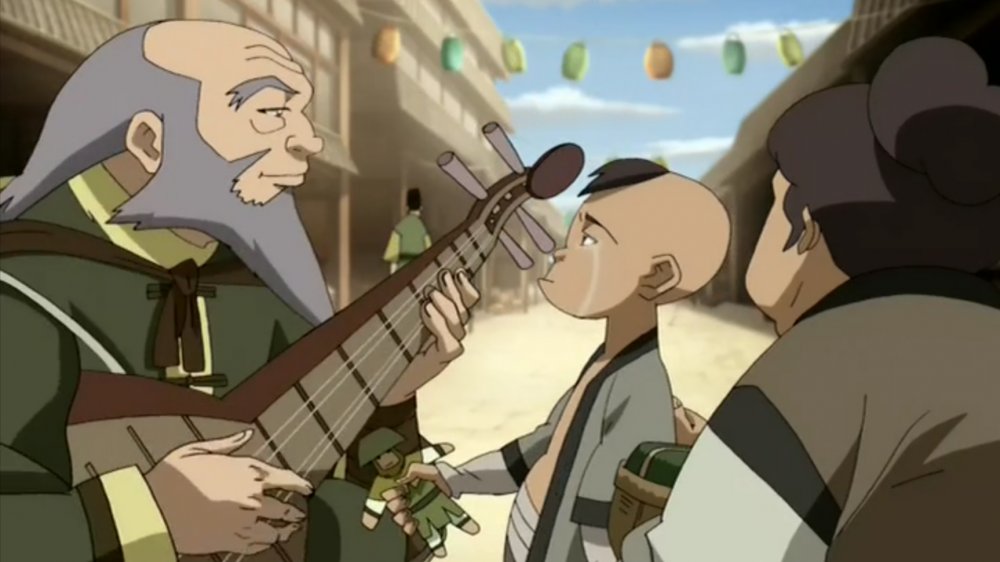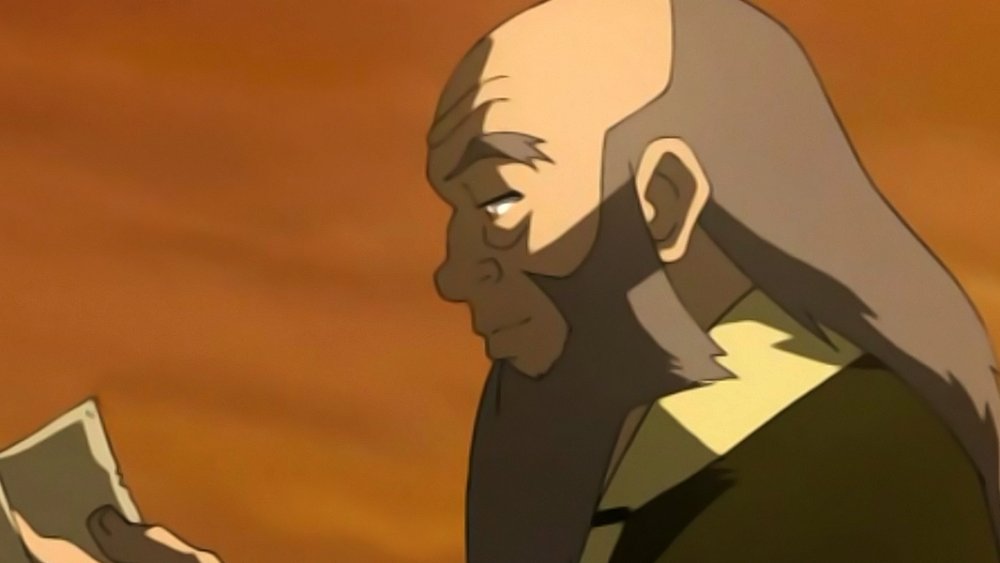Why This Iroh Episode From Avatar: The Last Airbender Means More Than You Think
Avatar: The Last Airbender was a reliable streamer for Netflix several years ago — a comfort watch for folks who had seen too much of The Office. When fans needed the show most, however, it vanished, only returning to Netflix earlier this month.
The response has been profound, with Netflix revealing that the show was by far the most streamed property in the week it debuted. Fans new and old are diving into the surprisingly deep children's story about a war-torn world and the complex characters that inhabit it. If you're looking to understand why, a segment of one episode stands out as a particularly great example of the depths of character development across the show's three seasons. "The Tales of Ba Sing Se" consists of several short stories. In one, brash loud-mouth Sokka stars in a segment about a poetry school that's told almost entirely in verse. In another, lemur companion Momo leads an exercise in wordless storytelling. It's "The Tale of Iroh," however, that has viewers talking — once they've stopped welling up. Where the other shorts are fun character sketches, Iroh's story reveals a pillar of the old general's entire character.
What happens in "The Tale of Iroh"
"The Tale of Iroh" follows the former Fire Nation general as he walks around the Earth Kingdom city of Ba Sing Se. The city is famously surrounded by a series of walls that kept Iroh out when he besieged the city in the early days of the war. He buys supplies for a picnic from a shopkeeper, offering some advice about how to keep a flower thriving.
When he sees a young boy crying outside of a stall selling instruments, he picks one up and plays a song about a little soldier boy to calm the child down. Iroh then ducks into an alley and finds a few boys playing soccer. When they kick the ball through a window, Iroh advises that they should take responsibility, but when the man whose window they broke turns out to be massive and driven to a violent rage, he encourages them all to make tracks.
While Iroh is hiding in an alleyway, a mugger attempts to steal from him. As the general is a veteran soldier and incredibly gifted martial artist, he explains that the mugger's stance is terrible before disarming him. Iroh then shares tea with the mugger and convinces him to follow his dreams of becoming a masseur. The short closes with Iroh hiking to a hill with his picnic basket. He sets up a shrine to his late son and once again sings the song about a young soldier marching home, through tears. Finally, Iroh reveals that it's his son's birthday, before the short ends with Iroh on the hill in silhouette.
Why this Iroh story matters
Iroh was once a general in the Fire Nation army, and the heir to the throne of the Fire Lord. His son was under his command during a siege of Ba Sing Se, and was killed in action, after which Iroh called off the siege and returned to the Fire Nation. At the same time, Iroh's brother Ozai convinced his father to revoke his right to the throne, noting that Iroh abandoned his post and no longer had an heir.
Given Iroh's deep regret over his son's death, the interactions of the episode can be viewed in a new light. Iroh is shown demonstrating fatherly lessons, going from infancy to adulthood. He soothed a very young boy who was crying, taught some children about when to accept punishment, and convinced a young man to follow his own ambitions. Iroh could not save his son, but his paternal instincts are still strong.
The episode takes on a further weight when a dedication appears. The vignette was dedicated to the Iroh voice actor Mako, who passed away after the show's second season. As the character of Iroh celebrates his late son, the show uses one of its most powerful episodes to mourn the loss of one of its founding talents.


